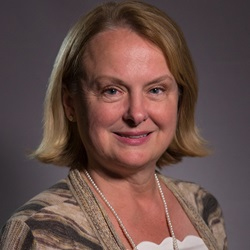These Unprecedented Times
PRESIDENT’S MESSAGE
In late January, as news was breaking about an outbreak of pneumonia-like cases in China that were later identified to be caused by a novel coronavirus (COVID-19), a friend of mine shared that he believed this virus would become widespread in the United States based on what he knew from a medical and epidemiology standpoint. While I certainly trust his expertise, I never would have imagined the next few months would unfold the way they have.
Yet here we are. Thirty days after first being reported as a pneumonia of unknown cause, COVID-19 was declared a public health emergency of international concern by the World Health Organization. Another 41 days and COVID-19 escalated to pandemic status. At the time I write this, 189 countries worldwide have at least one known case, and the levels of spread and severity are increasing.
As scientists, it is in our nature to approach COVID-19 from an intellectual standpoint. For example, a scientist on my team shared a website tracking the phylogenetic tree of COVID-19 overlaid on a world map: https://nextstrain.org/ncov. For those with an interest in molecular biology, the real-time view shows how the virus is changing as it moves around the world. Genetic sequencing could provide clues on whether a person was infected from contact with a traveler from China or picked it up from the community since the phylogenetic tree shows degree of relatedness to the original strain. The information on this website is both fascinating and concerning.
While we may have an intellectual interest in the biology, source, and transmission of this pandemic, we are all working through the personal aspects of this as well. Many of us live in areas where more and more cases are being reported every day. We can’t seem to wash our hands enough! We worry about loved ones who are older or immunocompromised and would be at greater risk if exposed. Our schools are closing, and we’re trying to figure out what e-learning looks like for our young people. We are being asked to transition to remote work and self-quarantine or continue work but practice social distancing, a new term that is now part of our daily vernacular. We are also being asked to limit group interactions to 10 or less, which means church services, large gatherings, and public events are being cancelled, and restaurants, bars, and shopping malls are temporarily closing their doors. While we don’t enjoy the disruption to our lives, we understand it is necessary in order to flatten the curve, thereby limiting the virus’s spread, and conserving our medical professionals’ capacity.
There is also the emotional side of things. We are grappling with the fear of so many unknowns. We are disappointed that important milestones like graduations, proms, weddings, and even funerals may not be held as planned. We want to know when we can get back to some semblance of normalcy.
The U.S. Food and Drug Administration has assured the American people there are no nationwide food shortages and no widespread disruptions in the supply chain, although in some cases, the inventory of certain foods at the grocery store might be temporarily low. We work in a vital industry. The entire food ecosystem cannot pause. Our mission of ensuring that our global food supply is safe, nutritious, and sustainable has become even more critical. Much of this work cannot be done virtually. Added safety measures are being implemented extensively to protect those continuing to report to their production facilities or to the many companies who support the food industry with needed services.
As for our friends in academia, who are seeing their campuses close and are being asked to virtually teach hundreds of students scattered around the country, I commend you. I can’t imagine what it would take to transition an in-person course syllabus to an online setting, or conduct a lab in a virtual environment, and many of you are doing this for the first time in your careers! But I know the esteemed professors in our ranks and their peers will do an excellent job despite the challenges they face.
As a scientific community, we can play an important role by being a calming source of reason and logic, helping our family and friends to understand the facts, advocating for hygienic best practices, and helping to dispel myths and misunderstandings. To help you in this pursuit, IFT has created a COVID-19 resource page that provides answers to frequently asked questions and helpful resource websites: www.ift.org/covid19updates. Feel free to share this resource with your friends, family, and the extended community, and don’t hesitate to reach out if there are additional resources you feel it would be helpful to add.
As a nonprofit dedicated to bringing together the global food community, the safety and security of our community is of utmost importance to IFT and is something we take very seriously. Stay well, everyone.


